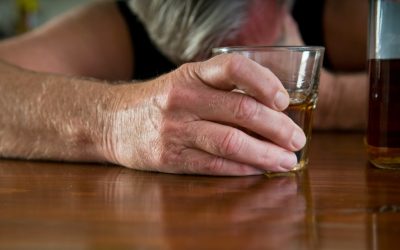What Happens to Your Brain When You Drink Alcohol?
This complex interaction is part of what makes alcohol’s effects on the brain so intricate and potentially problematic. The long-term changes in the brain’s reward system following drug addiction treatment alcohol cessation are still being studied. While many aspects of brain function can return to pre-alcohol levels, some changes may persist. For example, some individuals in long-term recovery report lasting changes in how they experience pleasure or respond to stress.
Distribution of Dopaminergic Neurons
Alcohol’s ability to artificially stimulate dopamine release can lead to a destructive cycle of craving, tolerance, and dependency. However, with proper intervention and recovery strategies, it is possible to restore dopamine balance and improve both physical and mental well-being. Alcohol use disorder (AUD) often coexists with mental health disorders such as anxiety, depression, and bipolar disorder. The disruption of dopamine regulation plays a key role in these conditions, as alcohol-dependent individuals are more prone to emotional instability and mood disturbances. Alcohol addiction has far-reaching effects on mental health, with dopamine dysregulation being a major contributor. This section examines how long-term alcohol use can lead to mental health disorders like anxiety and depression.

Managing Dopamine Deficiency and Withdrawal Symptoms

The role of dopamine in alcohol addiction and recovery is complex and multifaceted. From the initial artificial boost provided by alcohol to the challenges of withdrawal and long-term recovery, dopamine plays a does alcohol release dopamine central role in the entire process. Understanding these changes can provide valuable insights for those on the path to recovery and those supporting them. While the journey to dopamine recovery can be rewarding, it’s not without its challenges. One significant consideration is Post-Acute Withdrawal Syndrome (PAWS), a set of persistent withdrawal symptoms that can last for months or even years after quitting alcohol. PAWS is thought to be related, in part, to ongoing adjustments in the brain’s dopamine system.
- The disruption of dopamine regulation plays a key role in these conditions, as alcohol-dependent individuals are more prone to emotional instability and mood disturbances.
- The scans showed significantly more dopamine activity following the taste of beer than the sports drink.
- More broadly, our results call for the reevaluation of deeply held assumptions in neuroscience and biology regarding the directionality and stability of relationships between gene transcription and synaptic function.
- This mechanism may be one reason underlying the wide range of dopamine’s roles in behavior.
MeSH terms
- This is known as tolerance, where the brain becomes more resistant to dopamine.
- Nalmefene was significantly better than the placebo in reducing alcohol consumption.
- Following chronic alcohol exposure (right panel), network synchrony is disrupted due to the reduction in D2/D4 receptor modulation of excitability of pyramidal neurons and FSINs.
- But serotonin levels drop as soon as alcohol leaves the system, leading to feelings of irritability, anxiety, or even depression.
- Part of the reason why people with an AUD continue to drink, regardless of the personal and social consequences, is the way it affects the brain.
Speaking of alcohol, let’s take a closer look at the connection between alcohol and dopamine. Located in the heart of Pacific Beach, San Diego, our center offers a comprehensive Intensive Outpatient Program (IOP) designed to address both substance use and co-occurring mental health disorders. Part of the reason why people with an AUD continue to drink, regardless of the personal and social consequences, is the way it affects the brain. Alcohol addiction — the obsession and physical craving to consume alcohol — can partly be explained by the way that alcohol affects dopamine in the brain. Our staff includes master’s level counselors, licensed chemical dependency counselors, 24-hour nursing professionals, a staff psychiatrist, a staff chef, and direct care personnel. Our counseling staff provides individualized treatment and care for our clients with an emphasis on tailoring treatment to the specific needs of each individual.
Alcohol’s Actions as a Reinforcer: Dopamine’s Role

Alcohol triggers the release of dopamine levels in the brain’s reward system. While the brain has a remarkable ability to heal, the recovery process can be challenging. Individuals may experience a range of physical and emotional challenges, including negative feelings such as sadness and anxiety. Seeking professional help during this time is crucial, as proper treatment and support can facilitate a smoother and more successful recovery. Detoxification is an essential first step, helping to cleanse the body of alcohol toxins and restore harmony to the brain’s chemical balance.
- You won’t want to miss the chance to participate alongside fellow Reframers (or solo if that’s more your vibe!).
- Dopamine is a critical part of the brain that helps control movement, pleasure, attention, mood, and motivation.
- In 2006, there were more than 1.2 million emergency room visits and 2.7 million physician office visits due to excessive drinking.
There is evidence of a link between serotonin deficiency, impulsivity and drinking behaviour which may explain the role of SSRIs in suppressing alcohol reinforced behaviour in some alcohol-dependent patients. We hear many different things about how alcohol affects the brain and body, most notably that it is a depressant. Alcohol is a depressant, but it’s also an indirect stimulant, and plays a few other roles that might surprise you. Recovery times vary, but it can take several months to years for the brain to fully restore dopamine balance after prolonged alcohol use. Foods rich in tyrosine, such as bananas, almonds, lean proteins, and dairy products, can help boost dopamine production in the brain.
Drugs like Xanax and Valium (and other benzodiazopenes) increase GABA production in the brain, resulting in sedation. This, by the way, is one reason you don’t want to drink alcohol while taking benzodiazopenes; the effects will be amplified, and that can slow your heart rate and respiratory system down to dangerous levels. Alcohol directly affects brain chemistry by altering levels of neurotransmitters — the chemical messengers that transmit the signals throughout the body that control thought processes, behavior and emotion.
One of the immediate impacts is how alcohol messes with your neurotransmitters—those chemical messengers that help your brain communicate. Researchers currently are trying to determine whether alcoholics with abnormal serotonin metabolite levels have specific variations in the gene that codes for the enzyme tryptophan hydroxylase, which produces serotonin from other molecules in the cells. Several variants of the tryptophan hydroxylase gene exist; one variant appears to be particularly common in alcoholics with histories of aggression and suicidal tendencies (Virkkunen et al. 1995).
Unlike other drugs, which prevent the reuptake of dopamine, alcohol doesn’t do that. Your brain releases dopamine when you do things that trigger the reward system. At the alcohol addiction rehab center in Portland, OR, therapists work with good people who experience a disconnect.
These observations have stimulated many studies on dopamine’s role in alcohol https://allstarsbrokerage.sekofacility.com/alcohol-withdrawal-symptoms-treatment-timeline-2/ abuse and dependence, also with the intent of finding new pharmacological approaches to alcoholism treatment. This review summarizes some of the characteristics of dopaminergic signal transmission as well as dopamine’s potential role in alcohol reinforcement. However, the relationship between alcohol and dopamine is complex and often misunderstood. While alcohol initially increases dopamine levels, chronic alcohol use can lead to long-term changes in the brain’s dopamine system.
